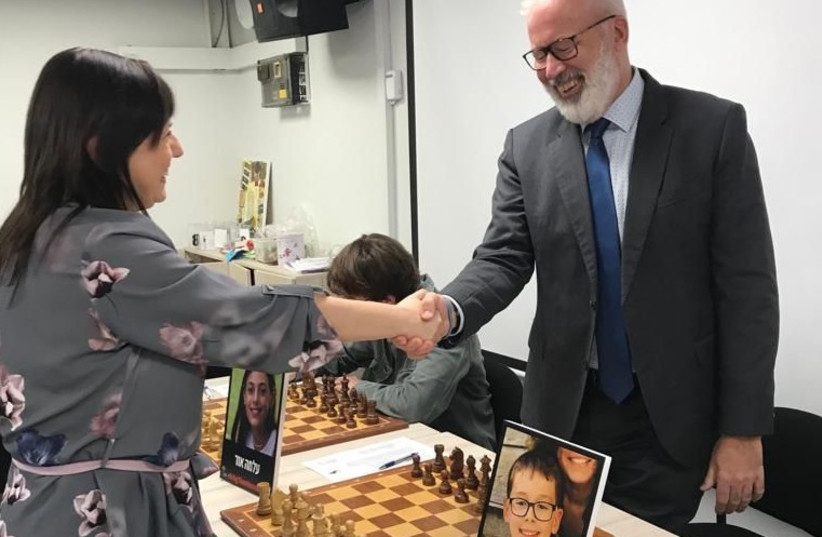Israeli chess clubs initiated an event in conjunction with the Hostages and Missing Families Forum, highlighting that many chess games would not be able to take place without hostages returning home.
The event took place in Savyon, a city in central Israel, and was one of many activities that were used to raise awareness for the return of the abductees.
The event was attended by Hungary's ambassador to Israel, Zoltan Szentgyorgyi, in order to show solidarity and support for the state of Israel.
The event was held alongside the photos of Israel's missing children, intended to instill emotion that was both empowering and meaningful.
In addition, an online event was held as part of Chess4Solidarity, a UNESCO-recognized world project run by the Chess4All organization. The project is intended to promote cultural dialogue, leading to the return of the abducted.

An event that crosses borders
The event was organized in just two days and drew close to 300 participants worldwide. The event drew participation from nations such as Iran, Indonesia, Egypt, and even the Palestinian territories alongside Israeli participants, calling for the immediate release of hostages, particularly children held captive.
Eytan Stibbe, the second Israeli astronaut, Grandmaster Boris Gelfand, the former Israeli world champion of chess, and Yossi Aroeti from the headquarters for the kidnapped made emotional, empowering remarks in front of a large Israeli and international audience.
Li Min Peng, a Ukrainian with Chinese roots, won 8 out of 9 rounds in the primary competition.
The event was available for chess viewers around the world to give commentary and watch the competition.
